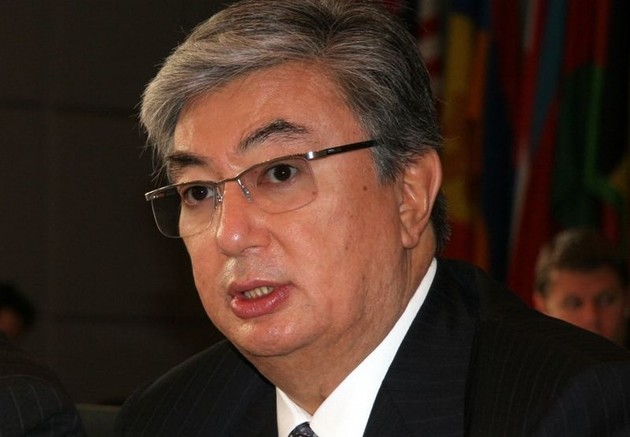By Vestnik Kavkaza
Kassym-Jomart Tokayev is a significant figure not only in Kazakhstan, but also in international politics. He graduated from MGIMO; took the post of Foreign Minister of Kazakhstan twice (1994-199, 2002-2007); moreover, he headed the government; and now he is the head of the Senate of the republic. Tokayev recently visited Moscow and spoke at the Diplomatic Academy of the Russian Foreign Ministry about key directions of Astana’s foreign policy.
“We pay special attention to strengthening global and regional security. That is why Kazakhstan takes an active part in the UN, OSCE, CSTO, and SCO. According to our strong opinion, the UN is the universal and non-competitive platform for negotiations and discussions of all the problems humanity faces. In our complicated, ambiguous times, it is extremely important to enforce the central role of the UN in international relations.
Concerning the OSCE, Kazakhstan chaired the organization in 2010. Thanks to support from the member states of the OSCE, and here I would like to stress the special role of Russia, we managed to hold an OSCE summit in Astana, where a declaration was passed after an 11-year break. And according to the declaration, our diplomats are now working on the implementation of the concept of indivisible security in the Euro-Atlantic and Eurasian spaces. Concerning the OSCE, it should show all its worth, it is not happening at the moment. And we believe that the OSCE should at this stage actively get down to a practical settlement of the Ukrainian crisis. which, we can say, was a challenge for the whole system of international law.
We took part in a summit on the problems of international terrorism in Washington. The General Assembly in autumn this year is expected to adopt an action plan against forced extremism. Kazakhstan joins the plan and wants to work under the auspices of the UN in this line,” Tokayev said.
He singled out the initiative of President of Kazakhstan Nursultan Nazarbayev to convene an assembly of the leaders of world and traditional religions: “The situation in the world is ambivalent and very complicated. The point is that world perceptions and religions are clashing, enabling some to talk about a clash of civilizations, according to Huntington's renowned theory. The situation is complicated indeed. What is happening around the destructive, extremist forces of Islamic State instills very serious fears. Just yesterday, reports appeared that military formations of Islamic State took over a very important city on the territory of Iraq, Ramadi. They are approaching another city, Palmyra, just 100km away.”
According to Tokayev, “Islamic State has activated in Afghanistan. In fact, they have united with the Taliban. But we need to remember that Islamic State, in terms of its military power and promotion of its values, is a lot more sophisticated than the Taliban. Because the ranks of Islamic State include people from Europe, unlike the Taliban, who have all the information technologies, they use them successfully. And, of course, it is a very dangerous force that the whole world community needs to pay special attention to.”
Concerning regional problems, the head of the Senate of Kazakhstan spoke of one of the most complicated concerns. “Diplomats of the five coastal countries have recently reached an agreement in Astrakhan. We consider it a breakthrough. And we believe that the Astrakhan agreement may become the basis of a future convention on the status of the Caspian. Although the problem is so complicated that predicting events in this line would be very difficult.”
Speaking about cooperation between Russia and Kazakhstan, Tokayev said: “For us, the strategic partnership and alliance with Russia is an indisputable priority. In Yekaterinburg, on November 11, 2013, a related agreement was signed. The Senate of the Kazakhstani parliament voted unanimously to ratify the agreement. And we want it to be the basis of allied relations between our countries. Border relations and interregional contacts based on over 200 agreements are developing at the moment. We believe that there is no alternative to allied relations and cooperation with Russia. This is the main line of our foreign policy.”






